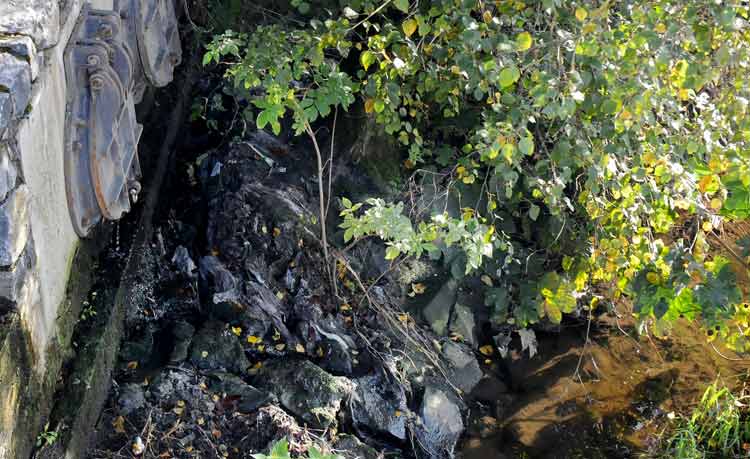World Water Week 2017
“A greater focus on protecting our most pristine water environments is needed,” says EPA
Back in late April 2006 the Environmental Protection Agency (EPA) received results of analysis on river sediment, taken from the Drish River and the Rossestown River, (both tributaries of the River Suir here in North Tipperary,) from Anglo American Lisheen Mining Ltd, Killoran, Moyne, just 17 minutes drive (14.1 km / 8.76 mls) via the N75 from Thurles, in Co. Tipperary.
Same analytical results related to the monitoring of metals in river sediment. The results received by the EPA showed unsatisfactorily high levels of metals, including lead and zinc, in river sediment. While the water itself was deemed unpolluted, the EPA notified local farmers in the area that farm animals e.g. cattle and sheep, should not be allowed direct access to the affected stretches of the rivers. Dredging or other river works were forbidden at these locations.
Rural dwellers were informed that Anglo American Lisheen Mining Limited, (EPA Licence Reg. No. 550) were working with the EPA’s Office of Environmental Enforcement in relation to re-mediation, to eliminate any further risks of pollution. Only inquisitive individuals from that dreaded ‘green activist fringe’ were taking notes, but were threatened that up to 1,000 highly paid jobs would be put at risk, should formal environmental protest be publicly registered.
This year 2017 we have, thanks to “environmental radicals” and others of that same ‘green fringe’, now become more acutely aware of our natural environment, and rightly raise objection; demanding caution, when ‘Big Business’ arrives outside our doors using the popular catch phrase ‘Major Job Creation Opportunities’, e.g. Fracking and proposals to allow Irish Cement to burn tyres and other industrial waste at its Mungret, Co Limerick plant, its dioxins and Carbon monoxide fumes to be blown on Ireland’s prevailing wind, which travels from the south and west, to be rained down on our clean, food producing County of Tipperary.

The EPA has today released its latest national assessment of water quality in Ireland. The release coincides with World Water Week, which links scientific understanding with policy-making and positive action toward water-related challenges.
The EPA assessment covers the six-year period between 2010 and 2015 and is the first full, six-year, assessment of the status of our waters under the Water Framework Directive. The assessment concludes that while there has been little overall change in water quality in the six years up to the end of 2015, there has been:-
- a failure to meet the planned national target of 13 per cent improvement in water status for the six-year period;
- a failure to prevent deterioration of water status at hundreds of water bodies around the country, which cancels out the improvements in water status at a similar number of water bodies in other parts of the country;
- welcome progress relating to a continued reduction in the level of seriously polluted waters – only 6 river water bodies were categorised as “Bad” in 2010–2015 compared to 19 in 2007–2009; and
- a continued and unwelcome decline in the number of our pristine rivers – only 21 sites achieved the highest quality rating from 2013-2015 compared to over 500 sites in the late 1980s.
Overall, 91 per cent of groundwater bodies, 57 per cent of rivers, 46 per cent of lakes, 31 per cent of estuaries and 79 per cent of coastal waters were found to be of good quality under the Water Framework Directive. The Water Framework Directive, other than in exceptional circumstances, requires good water status for all water bodies.
The assessment is available on the EPA website and the accompanying data used in the water quality assessments are available on www.catchments.ie.
More recent localised information on water quality is available on-line through https://www.epa.ie.

Leave a Reply